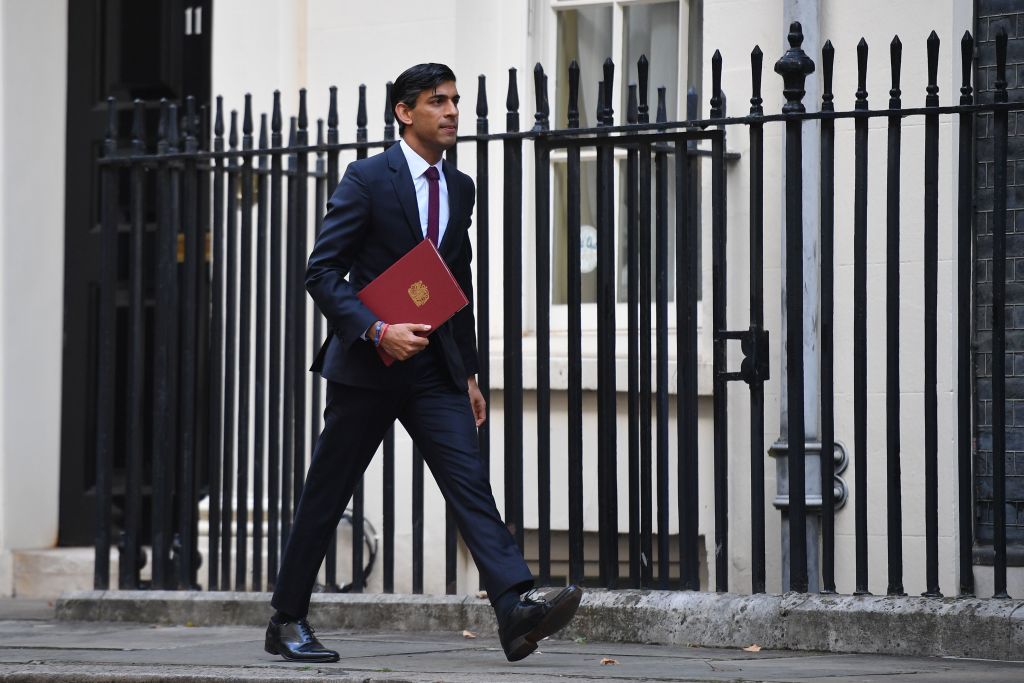- Thursday, April 03, 2025

By: indiaweekly.biz Staff
RISHI SUNAK launched new, scaled-back job support on Thursday (24) for workers hit by the resurgent Covid-19 pandemic, but warned he could not save everyone during the unprecedented economic turmoil.
The chancellor also unveiled plans to extend loan repayments for businesses and delay ending a tax cut for the hospitality sector which has been drastically hit by coronavirus restrictions.
“I know people are anxious, and afraid, and exhausted, at the prospect of further restrictions on our economic and social freedoms,” he told Parliament as he outlined his ‘Winter Economy Plan’.
“I share those feelings, but there are reasons to be cautiously optimistic.”
At the heart of the new measures is a replacement for the Coronavirus Job Retention Scheme, which supported 8.9 million private sector jobs at its peak in May and ends next month.
Under the new programme, support will only be available to workers whose employers keep them on at least a third of their normal hours.
For unworked hours, government and the employer will each pay staff at a third of their normal rate, with a maximum government contribution of £698 a month.
“The government will directly support the wages of people in work, giving businesses who face depressed demand the option of keeping employees in a job on shorter hours, rather than making them redundant,” Sunak said.
“These are radical interventions in the UK labour market, policies we have never tried in this country before.
“The primary goal of our economic policy remains unchanged – to support people’s jobs – but the way we achieve that must evolve,” he added, acknowledging, however, “I cannot save every business, I cannot save every job. No chancellor could.”
The Job Retention Scheme supported around a third of British workers at its peak and, earlier on Thursday, Britain’s statistics agency estimated that one in eight workers were being helped by the programme in early September.
‘A LOT TO LOSE JOBS’
The pandemic has killed nearly 42,000 people in Britain, the worst death toll in Europe, and the government is borrowing record amounts to help an economy on track for its biggest annual contraction in around 100 years.
Covid-19 cases this week showed their biggest daily increase since May, prompting new government restrictions from closing bars earlier to telling people to work from home again.
The Confederation of British Industry said the new scheme would save hundreds of thousands of jobs. Still, millions of jobs are on the existing programme that Sunak refused to extend.
Paul Johnson, the head of the Institute for Fiscal Studies, said the “less generous” scheme would mean more unemployment.
“Understandable given need to adapt as economy changes. Can’t pay all wages forever. But a lot on furlough now likely to lose their job,” he tweeted.
Sunak also said he would extend a cut to value-added tax for hotels, cafes and restaurants until March 31 to support the sectors which are struggling with demand.
He also introduced a new scheme to give businesses flexibility to repay loans taken out during the coronavirus crisis, allowing 10 years to repay rather than six.
Under the government’s Bounce Back Loan Scheme, 1.3 million small businesses have taken out a total of £38 billion in loans worth up to £50,000 each.
The Bank of England forecast last month that unemployment would jump to 7.5 per cent by the end of the year if there were no replacement for the existing furlough scheme ending at the end of October, up from 4.1 per cent in the three months to July.
The Labour Party said the new support was too late. The plunge in demand for flights, clothes and nights out has already led to tens of thousands of job losses.
Winter Economy Plan:
Loans
Taxation